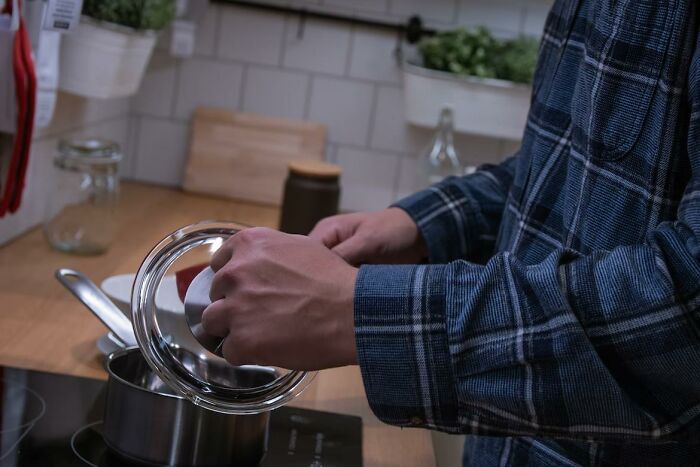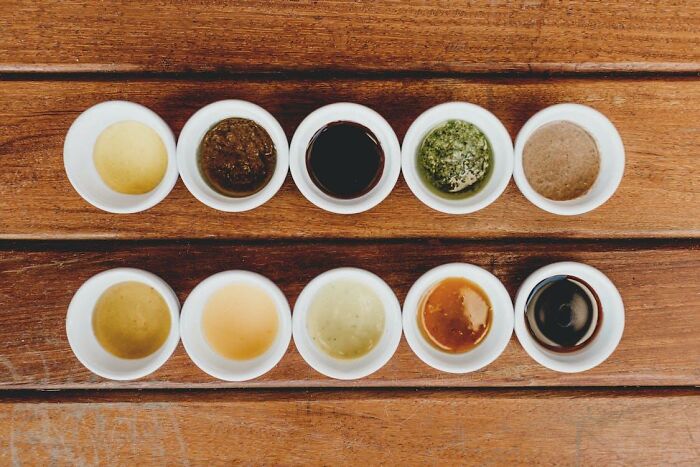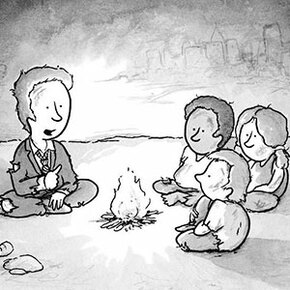
Upgrade Your Cooking With These 20 Best Tips From These Chefs Online
Last time, we talked about some cooking hacks that everybody should refrain from doing. To keep up with the spirit of wanting to improve our cooking, it’s now the time to talk about what we should be doing instead.
And whom else should we ask for advice? Are there other people that are more knowledgeable in cooking than the chefs? Well, today, we’ll be getting cooking tips from the chefs themselves! Below, you’ll find the most exquisite, useful, and interesting tips from those who have extensive cooking experience!
More info: Reddit
#1

Image source: shalashaska994, Malidate Van
The best and easiest improvements everyone can make are:
Season your food.
Let all meat rest after cooking.
These 2 alone will make a drastic difference.
#2

Image source: anon, Maarten van den Heuvel
After years of being a professional chef, my main advice to anyone;
Cookings not about eating, its aboot sharing experiences. No matter how bad you goof it up, its still a good time. Just go for it, cook and eat anything. “Oh whats that weird looking thing!?” yeah, buy that. “Chicken feet for 0.40 a lb” guess we’re googling chicken feet.
Put yourself outside those lasagne wednesday routine and you’ll be impressing your friends in no time.
Have fun :)
#3

Image source: OxidadoGuillermez, Lukas
* Buy more produce and meat, less prepackaged food
* If the ingredients list includes sugar, try to avoid buying it
* Always have on hand: garlic, onions, lemons, limes
* Remember to use plenty of salt, and if it still tastes flat, squeeze a little lemon or lime on there
#4

Image source: cheshirecatsmiles, Andrés Góngora
For the love of God, get your meat from a butcher.
#5

Image source: CartoonDogOnJetpack, Kevin Lawver
Get yourself a meat thermometer. They’re hella cheap and it takes the guess work out of cooking meats to the correct temp.
#6

Image source: Mun0425, Cassiano Barletta
Work in a 5 star kitchen, get some olive oil in a pan and cook some garlic (a lot) and rosemary in the oil until its cooked to a point it will melt in your mouth. Strain the oil and you have a cooking oil that has an amazing flavor that will add to whatever you are cooking with it.
#7

Image source: sundayfundaybmx, Klaus Nielsen
Always start with cold/room temp water when boiling pasta.
#8

Image source: Preemfunk, Leon Seibert
Clean while you cook. Don’t ruin your meal by slaving over it’s remnants on a full stomach.
#9

Image source: anon, Marta Branco
Smell your spices together and see if they smell tasty.
#10

Image source: skele-zone, Los Muertos Crew
Sharpen your knife. It’ll make a world of difference.
#11

Image source: JohnyUtah_, Kampus Production
Buy quality ingredients. You don’t have to buy *the best*. Just aim for somewhere in the middle.
#12

Image source: Anabeer, Brett Jordan
Don’t crowd your food. One of the major reasons restaurant meals turn out so well and taste so good is the larger pots, pans, cooking surfaces allow the food to saute, bake, broil, etc without steaming/stewing itself to death.
#13

Image source: sweetkittyriot, Mareefe
Use fresh whole spices (not ground spices that’s been sitting in your cupboard for years). I use a mortar and pestle to grind up the spices. Learn which spice needs toasting to release the flavor first before grinding. I love The Flavor Bible to see if there are combinations of flavors I have not tried before; it’s helpful especially if you are new to cooking. It’s by no means an exhaustive list but it’s great and does include some exotic ingredients.
#14

Image source: PearsonKnifeWorx, monicore
Learn to use salt properly. Properly used salt should never make a dish “salty” but should enhance the flavors within the dish and bring them to the surface better. Start by adding a little salt, taste, add a little more, taste. You will quickly learn to tell the difference between something that is over or under salted, and something that is just right. Salt content can make or break any dish, even sweets.
#15

Image source: CurtisX10, RODNAE Productions
Get your pan and oil hot before you put anything in it. The oil just absorbs into the food if it’s not hot. People coming out of culinary school make this mistake all the time.
#16

Image source: amos_burton, Victoria Bowers
Fresh cracked black pepper is 100x better than pre-ground. Buy a cheap pepper grinder, they’re disposable in the spice aisle, and use that.
#17

Image source: amos_burton, Andrea Piacquadio
Follow recipes, but not to a T. Cooking is an art, not a science (baking, however, is a science). After your first recipe or two, stop measuring out 1/4 teaspoons of stuff, and start eyeballing it.
#18

Image source: Myrdok, cottonbro
Salt your water for boiling pasta or potatoes… And not just a pinch either, it should taste almost (but not quite) as salty as sea water.
#19

Image source: optimistic_fox, Jonathan Borba
There is a cookbook called Sauces. Get it, read it, and use it. A good sauce can take a mediocre dish, to a really nice dinner.
Disclaimer: not all sauces are easy to make.
#20

Image source: ANSWER_NO_ONE_ASKED4, Katerina Holmes
Don’t just fry something in oil. Chop up some onions, a bit of garlic (not too much), and use butter instead of oil. Cook until the onions are golden, then add anything.
















Got wisdom to pour?